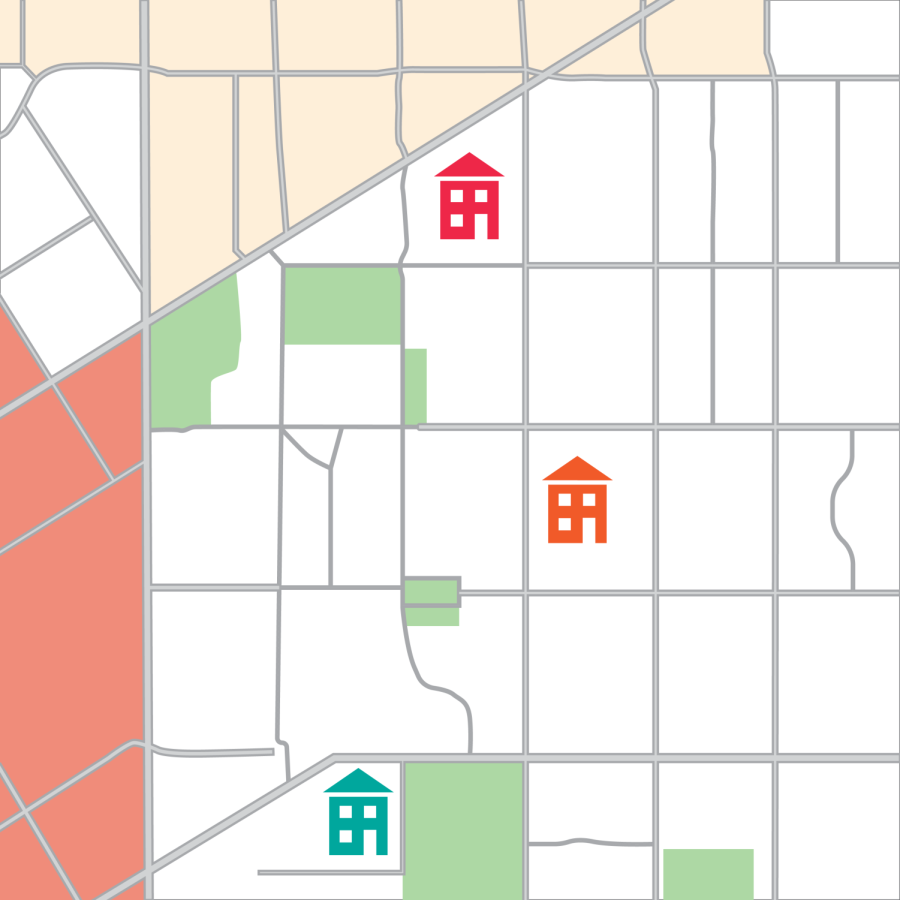Students Balance Cost and Location When Searching for Off-Campus Housing
When students enter their third year at Seattle University, they are given the opportunity to live off campus. Some students may already commute to campus as local residents that were excused from Seattle U’s housing requirements. However, as students look to either stay close to campus or move off campus, challenges of having to navigate between affordable housing and commuting distance arise.
For many upperclassmen, the opportunity to live away from campus is a new opportunity for freedom, but finding the right spaces amid the rising cost of living in Capitol Hill has proven to be an ongoing struggle. Some students have also found themselves looking at living farther from campus for more affordable options.
Many students who don’t want to live in the dormitory residence halls but still want to live on campus will seek out apartments at Vi Hilbert Hall and the Douglas Apartments. While these buildings are privately owned and managed, they are still Seattle University housing.
For the past two years, Third-year Kinesiology major Srinidhi Nanduri has lived off campus at home—the first year because of personal reasons and the second because of COVID-19. She described the commute as 30 minutes on a good day, and an hour when traffic is bad. Nanduri felt that the commute only made life more stressful, and relying on public transportation resulted in arriving to class late. As a result, she decided to live in the Douglas Apartments next year.
“I just found out I’ll be living there with three other roommates,” Nanduri said. “It’s an odd process with a lot of paperwork. It’s separate from the school and roommates are random. You have to apply early because everyone goes for them.”
Last year, when most classes were still virtual, Third-year Philosophy and Public Affairs double major Ruby Berliner lived in Vi Hilbert Hall. The experience gave her and her roommates the ability to be close to campus, but the major downside was that the two had to sign the lease without touring the apartment.
“It was a little difficult for us [to find this space] because when we were looking for housing, it was March-April 2020,” Berliner said. “So my roommates and I said ‘yes’ to the first offer we got even though we hadn’t been able to tour it or anything. We signed our lease and everything remotely. [Because of COVID-19], we didn’t get the chance to speak to others in the building beforehand.”
This year, Berliner and her roommate chose to live off campus. She described the search as difficult because many apartments are very expensive or far away from Seattle U. Eventually, a Zillow listing that was a 5 to 10 minute walk south of campus came up in their search.
“I think a lot of students live in the area because I always see students walking outside my window,” Berliner said. “I like living off campus—the commute to school is not bad and it’s pretty close to everything. It’s nice to have that separation from school and home.”
Second-year Business Analytics major Lauren Louie is looking forward to a new chapter of adulthood with the freedom that comes from living in a quad at Vi Hilbert Hall with her friends next year. She found the process of getting a space there surprisingly easy with the majority of the requirement revolving around signing papers.
“Prior to signing the lease for next year and figuring out where I wanted to live for my junior year, I did not realize my rent could be anywhere between $1,000 to $1,300 a month,” Louie wrote. “That was a crazy and insanely expensive number, but made more sense as I matured and understood what the lease includes.”
Location is a significant factor of consideration when choosing where to live. Third-year Public Affairs and Economics double major Anna Smalley moved off campus during her second year during the pandemic to an apartment that is 20 minutes away from Seattle U. Next year, she will be living in a house with her friends in the Central District—an area she thinks is more student-friendly.
“My current apartment is in a nicer neighborhood in northern Capitol Hill and we definitely don’t have any friends that live over here because it’s just not as affordable housing,” Smalley said. “I think next year will be nicer because a lot more students live over there and it seems there’s a lot more affordable housing.”
With all the different factors that go into where to live, students were willing to provide advice to others who are struggling with finding the right option.
Fourth-year Mechanical Engineering major Chiyo Natasha Miyake, who lived in Vi Hilbert over the pandemic, offered their thoughts on how to approach the process of finding off-campus housing.
“Finding housing personally [on your own] can be difficult and I recommend people really take into consideration what they’re looking for, but also if you find something you like, try to finalize it sooner than later,” Miyake wrote.
Nanduri emphasized planning a budget with respect to how much you are willing to pay for housing. She also recommended consulting with friends and being aware of exactly what you’re paying for—whether that’s touring the place beforehand or speaking with management.
“I think it’s really important to look at the details,” Nanduri said. “You need to consider the layout, how big the space is, what the utilities are and whether they’re separate from rent. It’s important to know these things and know what you’re willing to pay.”
Finding housing off campus is something that many students are still struggling to do—with some noting that the pandemic has increased demand and prices, especially around campus. It is universally acknowledged that the choice on where to live boils down to what’s manageable and livable for the person.










